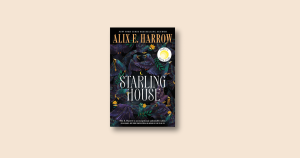Review by Manu Patil
A change-provoking novel, The Good Captain takes us on a journey through a dying ocean on a ship full of radical environmentalists and dirty politics, exploring a grim reality. Adding to the growing genre of Cli-Fi, Sean Rabin paints a bleak future of the ocean, overexploited by humans who do not understand the severity of their actions.
Our protagonists are a crew aboard a vessel called ‘Mama’, who are on a mission to deliver highly important cargo. As they go about their delivery, we learn more about the crew’s purpose and the world they live in. Spoiler alert, it sucks! The crew is united through their love and passion for the ocean. They feel responsible for its dire state and aim to seek vengeance on its behalf. This vengeance, on any given day, includes sinking fishing trawlers with torpedoes and killing greedy fishermen.
The Good Captain presents us with a dystopian world and perspectives of politics and morality which challenge the reader in many aspects. In a dystopian reality, what is the right thing to do if no one listens to what you say? For our main characters, the answer is violence. As a reader, coming to the terms with the murders our protagonists commit is the hardest pill to swallow, morally. How do you try to justify the main character’s actions of essentially hurling people to their death? You don’t. And here is where Rabin demonstrates excellent characterisation. His characters are unafraid to claim the term ‘sea monsters’. They are unafraid to commit wrongs for the greater good.
This is the case of Rena, the captain of ‘Mama’ who does not hesitate whilst firing torpedoes into unsuspecting fishermen and their trawlers. For her, protecting the ocean and saving it means more than any human life. Every fishing trawler she sinks means more fish lives are saved. This is a very big contrast to how traditional human society works, wherein we give human lives more value than others. It is refreshing to see a female character who is not subservient and righteous. In fact, throughout the book, Rabin has strived to challenge gender norms in a way that seems unforced and natural, something I personally find atypical of most novels written in dystopic settings.
Along with the main plot, Rabin also builds some interesting political commentary on the side. An obvious mirage of our home politics, one cannot help but draw comparisons. Even in this futuristic world, we see corrupt politicians, greedy corporations, and a lack of compassion for refugees. The Good Captain best summarises the political calamities of the world through the character of Angus Thompson – the 70th prime minister of Australia who has all but sold off the entire country during his term, leaving it in chaos while he retires in his safe haven, going about his hedonistic ways. Thomo is a character made to be hated. This makes for an interesting and surprisingly comical read, which lightens some of the heavy matter this book engages with.
What I liked most about this book was that it makes you sit and think about its message. I also really enjoyed the dry humour Rabin sprinkled in generously which has added character to his writing. Now, I won’t lie and say that reading all 600-ish pages of it was an easy task. It wasn’t. At times, the writing lacked cohesion and flow, especially as Rabin incorporated flashbacks. The pace also felt too fast, but looking back I can appreciate it as a device to portray the sense of urgency Rabin wants us to feel regarding this world. Occasionally, the descriptions of the working mechanism of the boat itself were very detailed, which I tended to glaze over. And I disliked how it offered a very bare look into the characters’ backstories, which made the novel feel a bit incomplete. Though, perhaps this was done to redirect our attention to the ongoing calamitous situation – the dying ocean.
All in all, I would rate this book a 3/5 and I urge you to pick it up if you are interested in climate change and Cli-Fi. At the heart of this book’s message, Rabin is trying to evoke us as a society to stop being in denial over climate change. Awareness is all well and good, but we need actions happening soon. To quote Rena, ‘All we care about is that it [change] finally begins’.








